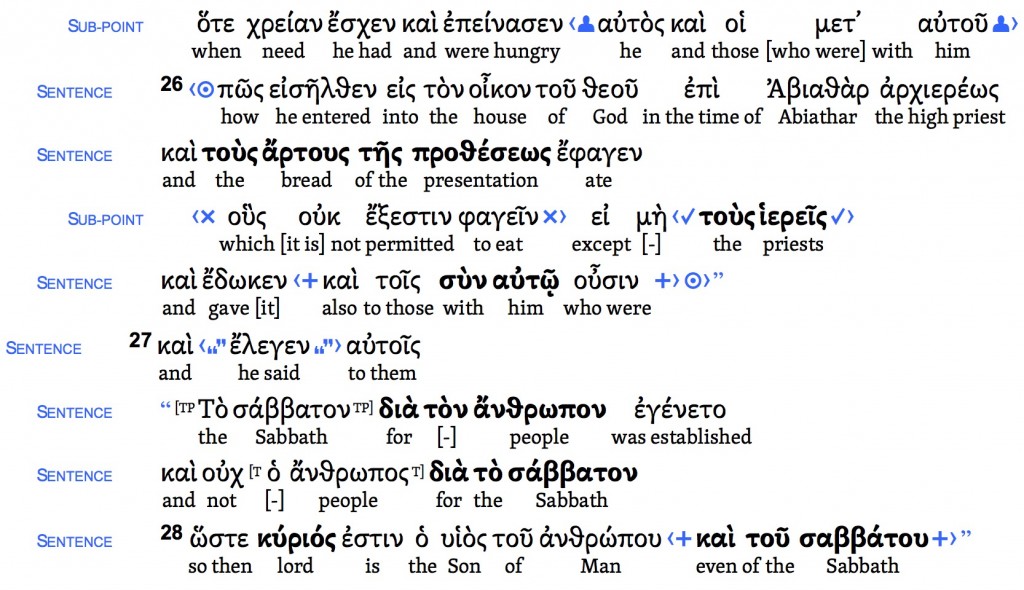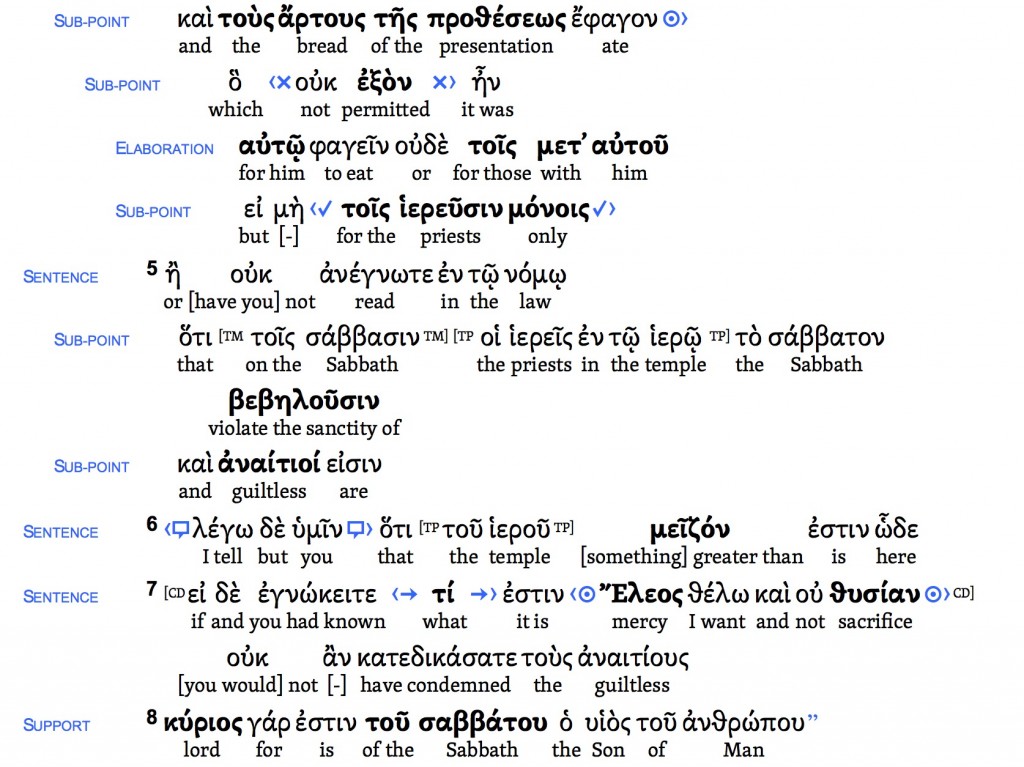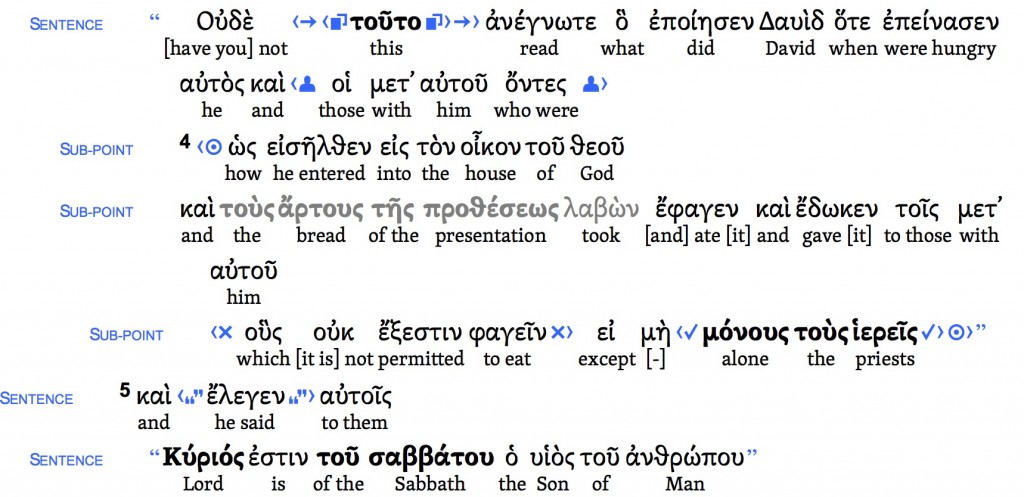We’re going to take a look at another passage found in all three Synoptic gospels recounting Jesus’s response to the Pharisees complaint about His disciples plucking grain on the Sabbath in violation of law. All three gospels have the same basic outline: the disciples plucking, the Pharisees questioning its lawfulness, and Jesus responding by appealing to the Old Testament for support. But each gospel writer presents a different portrait of Jesus’s response. Let’s begin with Mark 2:23–28. The OT appeal in Mark comes from the story of David entering the temple and taking the bread of the presence for his men to eat while they were fleeing from Saul. Verse 27 introduces the climactic Jesus’s statement to the Pharisees. Even though it is a single speech, Mark breaks it into two by reintroducing Jesus as the speaker with an extra “and he said to them.” Segmenting one speech into two generally draws attention to the final segment, which happens to be the climax of the confrontation.
The principle Jesus cites is that the Sabbath was made for man, not vice verse. Verse 28 introduces the resulting conclusion: the Son of Man is lord even of the Sabbath. This is the takeaway claim about Jesus from this encounter.
Matthew’s version actually draws twice upon the OT, the first about David taking the bread of the presence (Matt 12:3–4), and the second concerning how the priests were guiltless as they worked offering sacrifices in the temple on the Sabbath (Matt 12:5). In Matthew’s version, verse 6 begins the climactic statement, highlighted by the metacomment “I tell you.”
In this version, the comparison of Jesus as a greater temple is the takeaway. Notice that verse 8 begins with γάρ, signaling that it offers support for what precedes. So both Mark and Matthew include the same statement, but in different roles.
Luke’s account only has one appeal to the OT, the story of David taking the bread of the presence (Luke 6:3–4). Just as in Mark’s account, Jesus’s speech is segmented into two chunks using a redundant quotative frame, drawing attention to the final statement.
Jesus’s climatic statement about the Son of Man being lord of the Sabbath is the same as in Mark, but worded slightly differently. Mark’s version includes adverbial καί, creating a thematic link back to some related element. It presupposes that Jesus is lord of some things, adding that he is “even/also” lord of the Sabbath. By omitting καί in Luke’s version, Jesus is making a singular claim about who is lord of the Sabbath, without reference to other things He might be lord of.
Each of the gospels was written for a unique set of reasons. Each writer had a specific message to convey. Matthew’s version focuses on the claim about One greater than the temple having come, which figures into his gospel’s larger purpose for. Mark and Luke include no such detail, but instead focus on what for Matthew served as support for his claim: that Jesus is lord of the Sabbath. Three different perspectives of the same encounter written to accomplish different communicative goals.
***
If you enjoyed today’s post, like and share it with your fellow grammarians.
If you have had some Greek and are longing to dig deeper into issues like these, then it’s time to dive into discourse grammar. And there is no easier or more effective way to get started than the New Testament Greek Discourse Bundle.







